Last Updated on January 22, 2023
Picking your class is probably the most important decision you’ll make when you sit down to start a new Dungeons & Dragons campaign.
There’s a lot to consider and innumerable ways to go about it — from hyper-complex calculations of damage output and feat synergies to just figuring out what you think will be cool or even (Tiamat forbid!) fun.
Then, on top of all that, players are expected to think about how their new character “fits” into the adventuring party.
This is where I usually see new players get stuck, turn to a more experienced player (or their dungeon master) for advice, and get told, “We need a healer. Play a Cleric.”
Welcome to our guide to party composition in D&D 5e. Now, I know I usually bury the lead behind several paragraphs of waffle, but today I’m going to give you my best piece of advice right up front:
Never let the “need” for a balanced party force you into playing a character you don’t want to play.
D&D 5e does a great job of being a very merciful game. These are not the hyper-crunchy days of 4e; we’re not playing a wargame.
5e is very forgiving of players who make choices they think are cool rather than the one choice that powergamers think is right.
That being said, I think that party composition is still an idea we can interrogate, especially if we approach it from more than just a mechanical, combat-focused perspective.
Therefore, in this guide, I’m going to do my best to demystify the idea of party composition and go over how to tackle it, both from the classic (think Tank, Striker, Support) wargaming angle and a more narrative-focused approach.
What Makes a Well-Balanced Adventuring Party?
A well-balanced adventuring party brings a broad skillset to the table with each member excelling in one or two areas, like damage output, protecting their allies, solving problems, and dealing with social situations, so that the whole party feels like a well-rounded, well-oiled machine.
Though I’m pretty sure it’s fair to say there’s probably never been an actual D&D party in the history of D&D parties that you could describe as functioning like a well-oiled machine, there are decisions you can make about your class, subclass, feats, and other character options that mean your party is more effective, both in and out of combat, as well as generally better at staying alive.
Mechanical Party Composition: Balancing the Party
All classes in D&D 5e can sort of do a little bit of everything, which makes this a very forgiving game.
Your campaign isn’t going to grind to a halt because you don’t have a rogue who can pick locks; just get the wizard to learn the Knock spell, or buy your barbarian a battering ram.
However, with the way that D&D is intended to be played (go on adventure, find bad guys, beat up bad guys, take all their stuff, level up, rinse, and repeat), there are certain natural roles that different party members can fill.
These aren’t codified anywhere in the official rulebooks, and they’re not gospel; you don’t need a tank, a DPS guy, and a healbot. However, they’re a helpful way of thinking about the things your party can and can’t do well.
The more roles the different members of your party can fill, the easier it will be as a group to tackle a wide variety of challenges.
Remember, these roles aren’t set in stone, and there’s nothing to say that two characters can’t fill the same niche while another character fills three niches by themselves (bloody paladins, am I right?).
With the way that most classes in 5e are designed, they tend to fill about two roles each, and your subclass choice, feats, and multiclassing decisions can shrink that down to one or expand it to make yourself a bit more versatile.
Party Roles
While there are no concretely defined party roles in the rules of D&D 5e, there are some archetypes (largely stemming from more tactical games like D&D 4e and Pathfinder) that commonly crop up.
We’ve picked seven that encapsulate about 90% of everything an adventuring party is expected to do.
Ensure you have a good mix in your group, and you should be good to go.
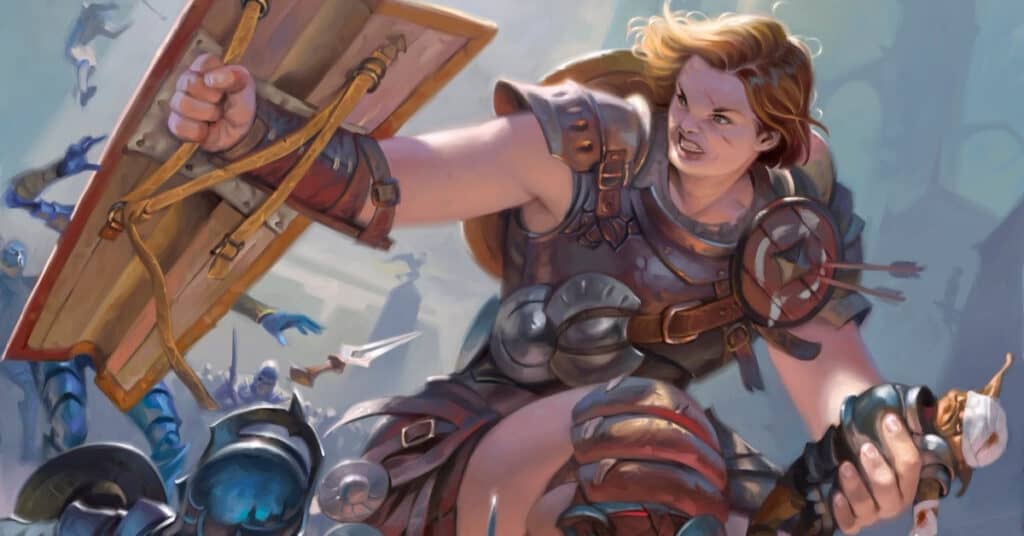
The Tank
Tough with a high armor class and/or hit point pool, the Tank exists to take the big hits so their allies don’t have to.
They’re all about either getting up in an enemy’s face and holding their attention or positioning themselves directly in between their enemies and their squishier allies, protecting them with abilities, spells, or raw Constitution.
Tanks can sometimes lack their own ways to dish out tons of damage, and the fact that tanky classes tend toward putting all their points into Strength and Constitution can mean that they suffer from a lack of social skills and versatility in general.
The greatest weakness you can have while playing a Tank, however, is a lack of mobility.
Any smart enemy played by a smart DM is going to try and circumnavigate you as soon as possible. If you’re not able to reposition yourself to protect a vulnerable ally, you’re not doing your job.
- Tanks Need: Hit Points, AC, Constitution
- Example Tanks: Cavalier Fighter, Abjuration Wizard, Bear Totem Barbarian, Armorer Artificer, Oath of the Ancients Paladin
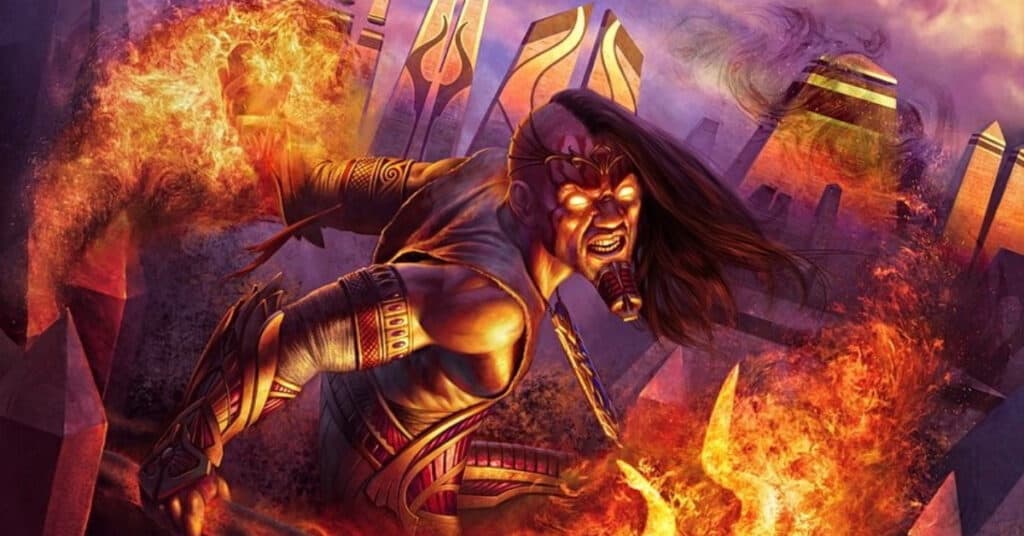
The Nuker
The Nuker lives to choose the biggest, baddest thing on the battlefield and turn it into nothing but a pile of bones and a surprised expression in as few rounds as possible.
A character filling this role is all about damage, damage, and finding ways to do more damage — usually to the detriment of everything else.
Nukers tend to be fragile, although that’s not always the case. Their biggest drawback is managing their abilities because, with a couple of exceptions, Nukers start out weak and get much, much stronger with levels.
- Nukers Need: Freedom of movement, protecting, levels
- Example Nukers: Evocation Wizard, Draconic Bloodline Sorcerer, Oath of Vengeance Paladin, Assassin Rogue, Samurai Fighter
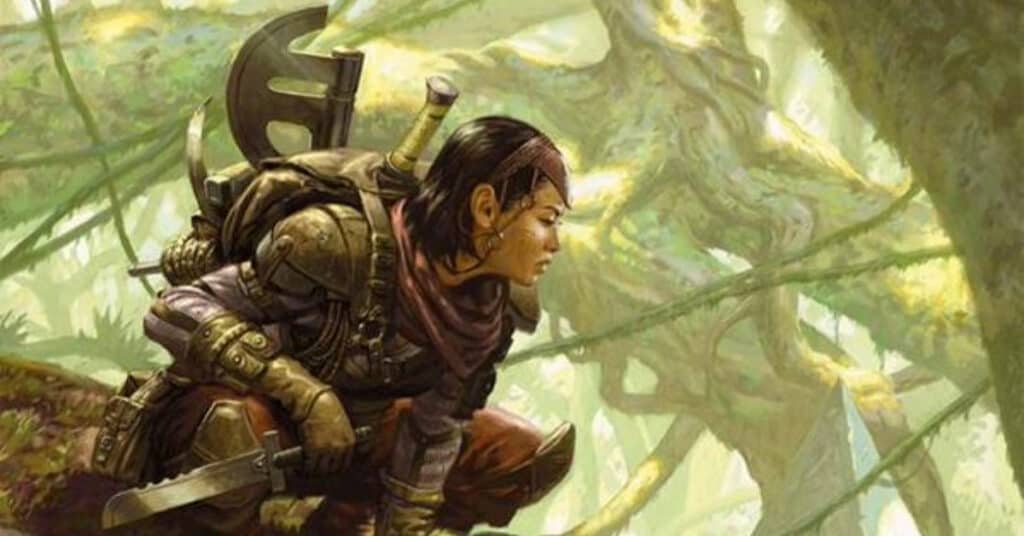
The Scout
Whether they’re clambering across the rooftops with a telescope, soaring a thousand feet in the air as a falcon, or tapping the walls and ceiling with their trusty 10-foot pole, the Scout role is filled by any character that excels at getting information from the world around them.
Classes that focus on exploration, tracking, finding and disarming traps, and seeing the enemy before the enemy sees them are all well suited for the Scout role.
- Scouts Need: High Wisdom (it fuels their Perception), Darkvision
- Example Scouts: Any Ranger, Scout Rogue, Thief Rogue, Circle of the Moon Druid, Divination Wizard
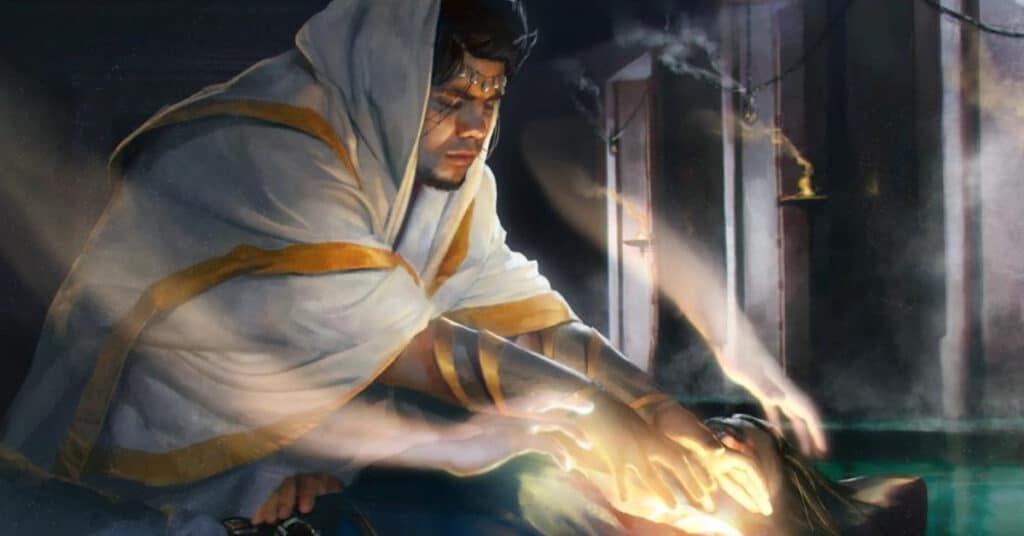
The Support
Supports are probably most closely related to the Tank role and exist to keep their allies alive for longer as well as make them more effective.
Supports can also pull this off by using magic and abilities to make their enemies less effective.
Supports usually fill an awkward third column in the party as they don’t tend to deal tons of damage and usually can’t take very much, but the added effectiveness they grant fellow party members can more than make up for it.
Any party with a dedicated healer, for example, is going to be able to stay in the dungeon for considerably longer.
- Supports Need: Healing, Buffs, Debuffs
- Example Supports: Life Domain Cleric, Circle of Dreams Druid, College of Lore Bard, Oath of Devotion Paladin
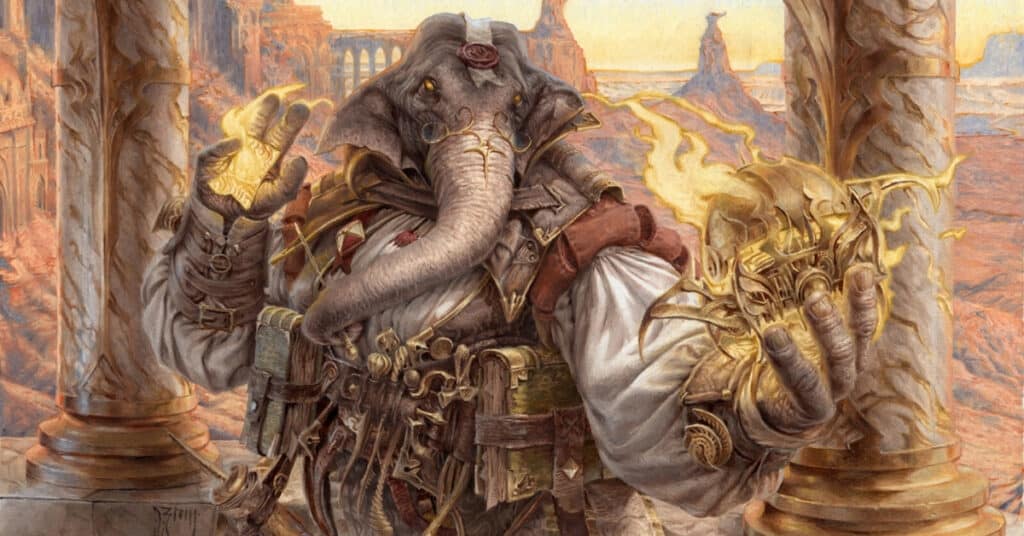
The Utilitarian
For situations when fighting isn’t an option, the Utilitarian excels at everything outside of combat and social situations, excelling at having the right knowledge, tools, or skills for the job.
Utilitarians are all about versatility and being able to basically take a crack at any challenge. In smaller parties or ones where other players’ characters are hyper specialized, a Utilitarian can be a huge help.
- Utilitarians Need: Knowledge Skills (Arcana, History, Religion), Tool Proficiencies, a Useful Background
- Example Utilitarians: College of Lore Bard, Knowledge Domain Cleric, Arcane Trickster Rogue, Any Artificer, Grave Domain Cleric
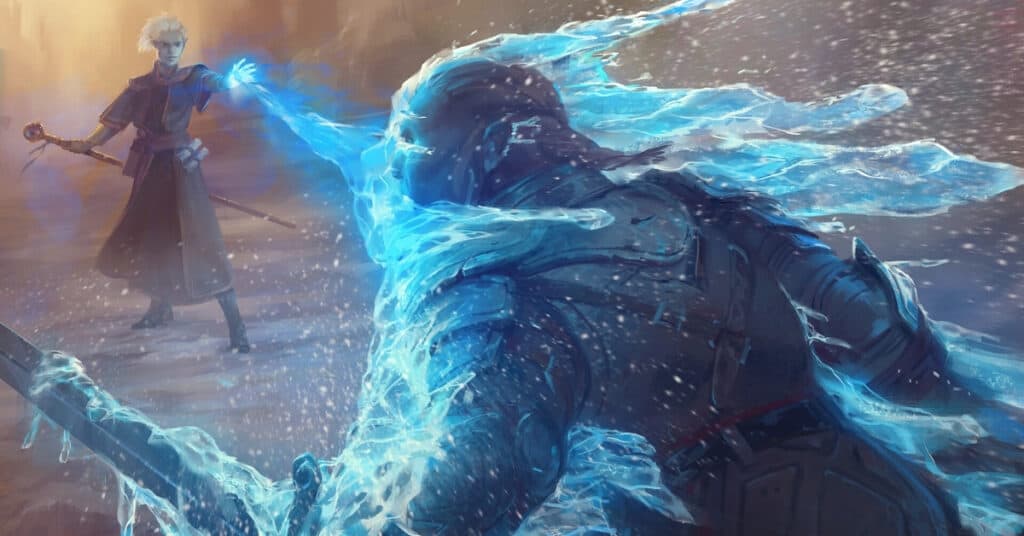
The Controller
Controllers excel at dominating the flow of battle, whether that means stopping enemies from moving or acting or providing greater freedom of movement to their allies.
Controllers can be highly offense-focused, grabbing the biggest enemy in sight and preventing them from acting or sit further back to reshape the terrain into a home-field advantage.
Now, while I’m sure you could fill the role of a controller with a purely martial character (the Battle Master fighter is pretty much the only option I can think of), they’re almost universally going to be magic users.
- Controllers Need: Spells
- Example Controllers: Circle of the Land Druid, Any Sorcerer, Warlock, or Wizard, College of Glamor Bard
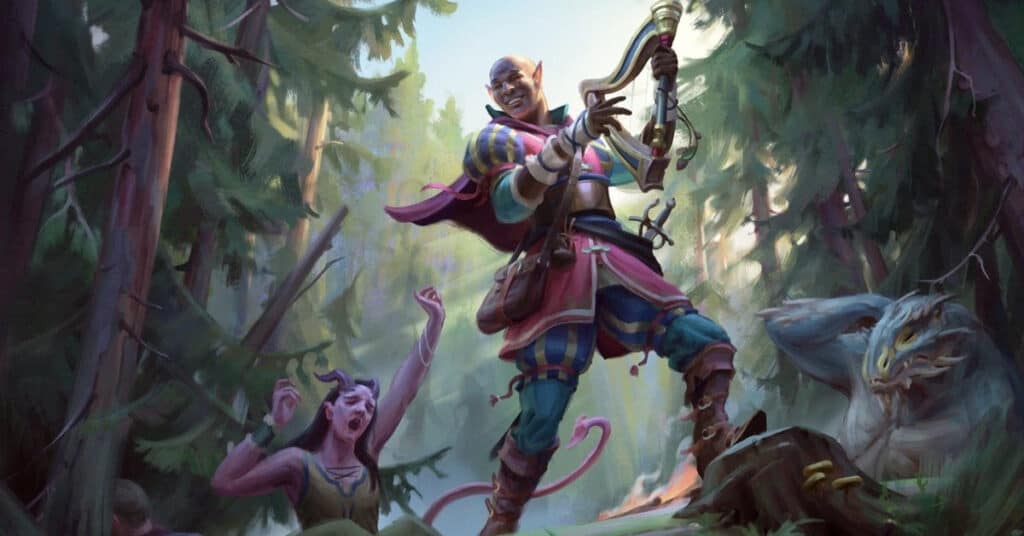
The Face
Lastly, the Face is all about social interaction, whether that means talking the party past the guards at the gates, barefaced lying to the BBEG, or convincing a dragon to give up its treasure.
Any class that has a high Charisma score and can get proficiency in one or more related skills is going to make an excellent front person for the party — although Faces do often end up having to answer for their fellow adventurers’ antics when the town guards come calling.
- Faces Need: Charisma (and lots of it), Enchantment Magic
- Example Faces: Any Bard, Paladin, Sorcerer, or Warlock.
Cover at least most of these bases, and there shouldn’t be a problem your DM can throw at you (spontaneous death by Tiamat notwithstanding) that you aren’t ready to tackle.
Multiclassing and Feats: Filling in the Blanks
Sometimes, you make your characters, play a few sessions, get in a few scary situations, and realize that there’s something missing from your party.
If you’re starting to think your party really needs a healer, or some extra damage, or someone to act as the tank, there are a number of things you can do.
First, you could try hiring in some extra help in the form of retainers. If that’s not your style — or if there just isn’t any good help to be had — then feats and multiclassing are great ways to round out your party’s capabilities.
Feats
Feats are optional rules that allow you to round out and add new abilities to your character. If you find your party composition is lacking one of the roles mentioned above, you can partially fill that gap with a feat.
- Tank Feats: Resilient, Sentinel, Shield Master, Tough
- Nuker Feats: Elemental Adept, Great Weapon Master, Sharpshooter, War Caster
- Scout Feats: Alert, Keen Mind, Observant, Skulker
- Support Feats: Artificer Initiate, Chef, Healer, Inspiring Leader
- Utilitarian Feats: Prodigy, Magic Initiate, Skill Expert, Skilled
- Face Feats: Actor, Linguist, Telepathic
Multiclassing
Even a few levels in the right class can do a lot to round out your character’s abilities and compensate for something your party may be lacking.
Need more damage? Try multiclassing into Grave Domain Cleric for double damage or Samurai Fighter for a burst of extra attacks.
Even with just a few levels in a class like cleric, bard, or druid, you can solve a lot of your party’s healing issues.
We mentioned some of the best classes for each role in the previous section.
You can explore them as potential multiclass avenues for your current character or take a look at our breakdown of some of the best multiclass pairings in the game here.
Narrative Party Composition: Why Are We Here?
I think there’s a whole other side to party composition that speaks less to the mechanical capabilities of each character and more to the reason you’re all adventuring together in the first place.
This is where the session zero comes in.
Session Zero
I wrote a full-length guide to why and how you should be running a session zero, but in essence, it’s a way for the players and DM to get together before the story begins and collectively get on the same page.
The DM can pitch their idea for a campaign, fill players in on their expectations, and help the players create their characters.
This is the environment in which conversations about “who’s going to play support” tend to crop up, and unless all the players like to play that way (or we’re playing something highly tactical where having a dedicated tank actually matters, like Lancer), I tend to discourage them from becoming the be-all and end-all of the discussion.
What I suggest instead is that a session zero shouldn’t just be a place for building your characters’ abilities and backstory; rather, it should be for building the whole party’s mechanical abilities and backstory.
5e is a game that rewards putting a decent amount of effort into a new character, weaving them into the setting (whether that’s Athas, Greyhawk, the Forgotten Realms, or the DM’s own world), and figuring out how they know the rest of the party.
Sure, you can all meet in a tavern as strangers. Gods know I’ve run that campaign before. Several times.
However, my tip for DMs and parties alike (players have agency here too, you know) is that a group with a concept and a set of goals is going to be much easier to start having adventures with.
Whether you want to establish yourselves as a group of itinerant mercenaries, a budding criminal syndicate, a convocation of fugitives, or anything else you like — maybe you’re working for a group patron or faction — having a clear concept and goal for an adventuring party is also going to help you think of ways for your characters to fit within it.
Hopefully you feel like you have a grasp on how different classes fit into different roles in a party and how filling out those roles can help a party feel mechanically balanced.
Also, I hope you take the time to talk about party composition in a more narrative sense as well. Trust me: it’s really fun.
Until next time, people. And don’t forget to always bring a healer.
- About Author
- Latest Posts
I played my first tabletop RPG (Pathfinder 1e, specifically) in college. I rocked up late to the first session with an unread rulebook and a human bard called Nick Jugger. It was a rocky start but I had a blast and now, the better part of a decade later, I play, write, and write about tabletop RPGs (mostly 5e, but also PBtA, Forged in the Dark and OSR) games for a living, which is wild.
